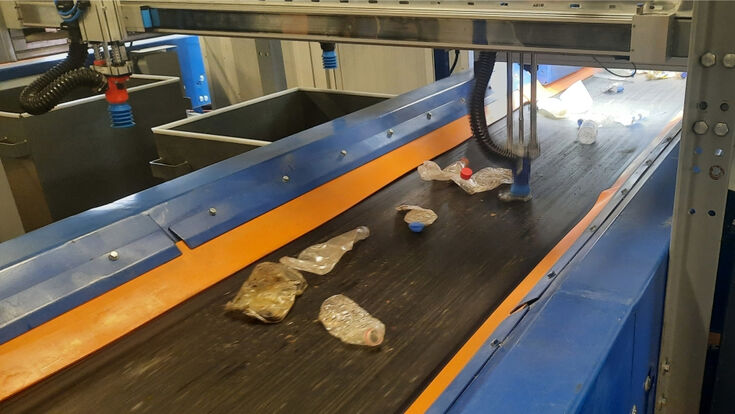Expert Guidance on Reclaim Waste Liquid Waste Removal and Industrial Waste Water Treatment
Enhancing Environmental Sustainability With Strategic Liquid Waste Removal Solutions
In the world of environmental sustainability, the effective monitoring of liquid waste stands as a crucial prime focus in preserving our environments and protecting public wellness. The elaborate web of difficulties bordering liquid garbage disposal requires a tactical approach that goes past conventional approaches. By discovering sustainable solutions customized to specific contexts, markets can not only mitigate environmental harm but also unlock long-lasting benefits for their operations. As we navigate the intricacies of fluid waste removal in today's landscape, it becomes increasingly noticeable that a positive position is vital. Let us start a trip to uncover the transformative capacity of strategic liquid waste management practices in boosting ecological sustainability.
Significance of Fluid Waste Administration

One of the vital reasons why fluid waste management is crucial is its direct impact on public health. Proper administration of liquid waste helps prevent these wellness threats and ensures the well-being of the populace.

Challenges in Liquid Garbage Disposal
Given the vital relevance of correct fluid waste monitoring in protecting public health and ecological well-being, it is necessary to address the various difficulties associated with fluid waste disposal practices. One considerable difficulty is the lack of sufficient infrastructure for the collection, therapy, and disposal of fluid waste.
An additional obstacle is the presence of dangerous materials in fluid waste, including chemicals, hefty metals, and virus. Correct identification and treatment of these unsafe parts require customized knowledge and equipment, which might not always be conveniently available. In addition, the cost of applying secure disposal techniques can be expensive for some municipalities and industries, leading to further and non-compliance environmental damage.
Sustainable Liquid Waste Solutions
Among the pushing need for efficient fluid waste management strategies, the necessary of sustainable remedies arises as a critical issue for environmental conservation and public health. Sustainable liquid waste options include a range of innovative technologies and practices intended at decreasing the ecological influence of waste disposal.
Additionally, lasting fluid waste solutions focus on the conservation of water sources via the application of water recycling and reuse strategies. By dealing with and repurposing wastewater for non-potable applications like watering or commercial processes, these options add to water conservation initiatives and minimize the pressure on freshwater resources. Generally, the combination of lasting fluid waste remedies not only supports ecological sustainability however additionally fosters a much healthier and more durable society for future generations.
Advantages of Strategic Removal Practices
Tactically applied elimination methods play a vital duty in maximizing top article liquid waste monitoring systems for environmental sustainability and public health security. By embracing critical elimination methods, companies can dramatically decrease the environmental influence of liquid garbage disposal. Among the vital advantages is the reduction of damaging impurities entering water bodies, which helps in maintaining marine ecological communities and safeguarding alcohol consumption water resources - Reclaim Waste liquid waste removal. Strategic removal methods likewise add to minimizing the risks of dirt contamination, which can have resilient effects on farming performance and biodiversity.
Furthermore, these techniques promote source healing by allowing the removal of beneficial products from liquid waste streams. This not only decreases the dependence on virgin resources but likewise sustains the circular economic climate concepts of reuse and recycling. Furthermore, critical removal techniques can improve functional effectiveness and cost-effectiveness by enhancing waste monitoring procedures and maximizing resource allocation. On the whole, the benefits of critical elimination practices expand past ecological sustainability to include financial benefits and enhanced public wellness results.
Applying Efficient Ecological Strategies
Reliable implementation of environmental strategies is extremely important in attaining sustainable liquid waste administration techniques. To start with, firms must perform comprehensive environmental assessments to determine potential risks and effects associated with their fluid waste disposal processes. By recognizing the ecological implications of their operations, organizations can develop targeted approaches to decrease harm to ecosystems and public health and wellness.
In addition, implementing efficient environmental techniques entails establishing clear objectives and objectives for fluid waste monitoring - Industrial waste water treatment. These goals should specify, measurable, obtainable, appropriate, and time-bound (WISE) to make sure liability and track development in the direction of sustainability targets. Companies can likewise take advantage of innovation and technology to enhance fluid waste therapy procedures, minimize resource usage, and discover this boost overall effectiveness
Cooperation with regulatory look at this web-site companies, stakeholders, and environmental experts is an additional vital facet of effective method application. By involving with external partners, companies can gain beneficial insights, gain access to resources, and ensure conformity with ecological regulations and laws. On the whole, a proactive and strategic strategy to ecological administration is necessary for reducing ecological threats and promoting lasting sustainability in fluid waste elimination practices.
Conclusion
In conclusion, critical liquid waste removal services play an important function in enhancing environmental sustainability. By attending to the challenges in fluid waste disposal and implementing lasting methods, we can minimize the negative influence on the environment - Industrial waste water treatment. It is essential to prioritize efficient environmental strategies to guarantee the lasting wellness and health of our earth
By carrying out effective waste monitoring methods, such as appropriate collection, treatment, and disposal methods, the dangers associated with liquid waste can be significantly minimized.
Given the important significance of appropriate liquid waste administration in guarding public health and ecological health, it is imperative to deal with the numerous difficulties associated with liquid waste disposal techniques. Sustainable fluid waste solutions encompass a range of ingenious modern technologies and practices intended at reducing the ecological effect of waste disposal.Strategically applied elimination methods play an essential role in maximizing fluid waste management systems for ecological sustainability and public wellness security. On the whole, a critical and aggressive method to ecological management is vital for minimizing environmental dangers and promoting lasting sustainability in liquid waste removal practices.